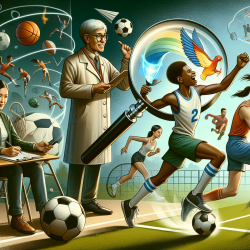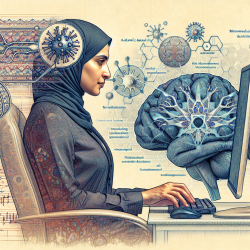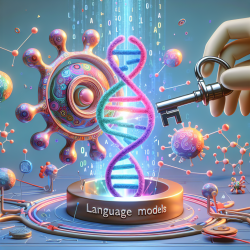Athletic identity (AI) is a crucial concept in sports psychology that refers to the degree of personal connection an individual has with their role as an athlete. While extensively studied in adults, AI's impact on younger athletes has been less explored. The systematic review titled "Athletic Identity in Youth Athletes: A Systematic Review of the Literature" sheds light on this topic, offering valuable insights for practitioners working with young athletes.
The Significance of Athletic Identity
Athletic identity is not just about how athletes see themselves; it influences their motivation, self-esteem, and mental health. For youth athletes, a strong AI can lead to higher levels of physical activity and better performance outcomes. However, it can also pose risks such as increased stress and burnout if not managed properly.
Key Findings from the Systematic Review
- Demographics: AI scores vary across different races and ethnicities. Non-Hispanic white students often report higher AI scores compared to Hispanic and non-Hispanic black students.
- Adolescence: AI tends to increase during adolescence, especially when transitioning to higher levels of play. This period is critical for developing a strong sense of athletic identity.
- Mental Health: Higher AI levels can protect against burnout but may increase depression risk in injured athletes. Practitioners should be aware of these dynamics when working with young athletes.
- Injury: Athletes with high AI are at greater risk for injury due to overtraining or playing while injured. This highlights the need for balanced training programs.
Implications for Practitioners
Understanding AI can significantly enhance a practitioner's ability to support youth athletes. Here are some strategies practitioners can implement based on the research findings:
- Individualized Support: Recognize that AI varies among individuals and tailor support accordingly. Consider demographic factors such as race and ethnicity when developing training programs.
- Mental Health Monitoring: Regularly assess the mental health of young athletes, especially those with high AI levels. Encourage open communication about stress and burnout.
- Balanced Training: Promote balanced training schedules that prevent overtraining and allow for adequate rest and recovery.
- Cultural Sensitivity: Be culturally sensitive and aware of how different backgrounds can influence an athlete's identity and experiences in sports.
The Need for Further Research
The review highlights gaps in current research, particularly regarding the long-term effects of AI on youth development. Further studies are needed to explore how AI influences career transitions, injury recovery, and overall well-being in young athletes.
Athletic Identity in Youth Athletes: A Systematic Review of the Literature
By understanding and implementing these insights into practice, practitioners can better support the holistic development of youth athletes, ensuring they thrive both on and off the field.










